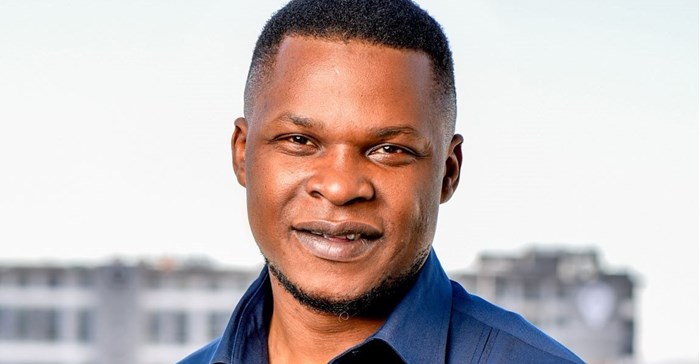
NJ Ayuk, Africa Energy Chamber executive chairman
Achieving net zero emissions means the amount of greenhouse gases being emitted into the atmosphere would equal the amount being removed. Achieving this balance, the IEA maintains, would require more than aggressive carbon-capture measures: It would call for a swift and immediate shift from petroleum energy sources to energy provided through naturally replenished sources like wind, water, and solar power.
From an environmental standpoint, this is a great concept.
But we live in reality. And today, in real-world Africa, this goal is not feasible. Nor is it advisable. While I agree with their data on many topics, the IEA’s conclusion is flat-out wrong on this issue. Africa needs oil and gas.
Unreasonable objectives
Some of the critical steps in IEA’s roadmap include:
- No new investment in new fossil fuel supply (including oil and gas) after 2021
- No new sales of fossil fuel boilers after 2025
- No new internal combustion engine (ICE) car sales after 2035 globally
- 60% of car sales are electric by 2030, and 50% of heavy truck sales are electric from 2035
These steps assume a lot about the state of the world — assumptions that are faulty, especially for Africa. For one, it will require universal energy access by 2030, meaning that everyone has access to electricity and clean cooking. And with approximately 592-million Africans currently without this access, we’re going to be hard-pressed to flip that switch in less than 10 years.
The IEA’s roadmap to net zero also relies on unprecedented investments in renewables — a substantial boost in clean energy investments from the $1trn made over the last five years all the way up to $5trn annually by 2030 — and cooperation from policymakers who are unified in their efforts. In this idyllic partnership, our Western counterparts talk a good game. But the fact is, to date, these same Western countries have invested little to no funding into Africa's renewables space. To our dismay even the international oil companies that have tried to accept the IEA’s publicity stunt have little or no renewable projects in Africa.
“For many developing countries, the pathway to net zero without international assistance is not clear,” OPEC wrote in response to IEA’s roadmap release, issuing a “critical assessment” on the very same day. “Technical and financial support is needed to ensure deployment of key technologies and infrastructure. Without greater international co‐operation, global CO2 emissions will not fall to net zero by 2050.”
As I have stated in the past, demonising energy companies is not a constructive way forward, and ignoring the role that carbon-based fuels have played in driving human progress distorts the public debate. We cannot expect African nations, which together emitted seven times less CO2 than China last year and four times less than the US, according to the Global Carbon Atlas, to undermine their best opportunities for economic development by simply aligning with the Western view of how to tackle carbon emissions.
Creating new problems
China, meanwhile, appears willing to continue investing in fossil fuel projects in Africa. This means that to keep their nations energised, African governments will have little choice but to partner with China — whose performance is notoriously poor when it comes to environmental protection, despite having signed the Paris climate accord. In this scenario, China will become the most influential entity in the African oil and gas industry. And giving China (or any foreign entity) such a monopoly is a dangerous play.
For the IEA plan to work, no new oil and natural gas fields would be developed. The potential energy security risk here is twofold: Concentrated production means that demand will exceed the supply of traditional fuels, while new energy security issues emerge related to the new technologies such as cybersecurity and a dwindling supply of rare earth and critical minerals. And energy insecurity brings economic insecurity and geopolitical instability.
At the same time, a ban on fossil fuel production would bring about the collapse of many carbon-dependent governments. The oil industry is the primary source of income for many African nations. Without the continuation of petroleum production — or time and opportunities to cultivate new revenue sources — their economies will suffer — along with their citizens.
Interestingly, the very announcement of this roadmap features an admission by IEA executive director Fatih Birol that net zero will unhinge socioeconomic structures.
“This gap between rhetoric and action needs to close if we are to have a fighting chance of reaching net zero by 2050 and limiting the rise in global temperatures to 1.5 °C. Doing so requires nothing short of a total transformation of the energy systems that underpin our economies,” Birol wrote.
And many of the world’s economies cannot bear this.
Excellent points from Australia
Energy officials from Australia, for example — incidentally, one of the IEA member countries — had plenty to say in response.
“There are many, ways to get to net zero, and the IEA just looked at one narrow formula,” said Australian Petroleum Production and Exploration Association chief Andrew McConville. “The IEA report doesn't take into account future negative emission technologies and offsets from outside the energy sector — two things that are likely to happen and will allow vital and necessary future development of oil and gas fields.”
In urging policymakers to maintain a degree of scepticism about the wisdom of the IEA roadmap, McConville isn’t alone.
“We are bringing emissions down, but we’re going to do it in a way that ensures we’ve got that affordable power that Australians need," said Angus Taylor, Australia’s minister for energy and emissions reduction,
Rather than being dictated to by entities abroad, Taylor argued that Australia must proceed at a pace that makes sense locally. And part of these local considerations includes ensuring that people have energy and jobs. The IEA’s call to cease investment in fossil fuels will impede both of these metrics.
“Global gas demand is forecast to grow by 1.5% on average per year out to 2025, providing incentive to ensure our large gas fields … are developed as soon as possible,” said Keith Pitt, Minister for Resources. “Large upcoming offshore developments … will create thousands of new high-wage jobs.”
Africa’s realities
The same holds true for African countries.
While environmental causes are a major focus in the West, lawmakers in Africa’s developing countries are more concerned with living wages and supplying basic necessities to the continent’s growing population.
The IEA plan amounts to austerity measures that would see Africans leaving petroleum resources in the ground. It would essentially brand poor Africans criminals — or at the very least enemies of the environment — for using fossil fuels.
This is folly. Let’s keep in mind the critical role that natural gas is playing in the global transition to clean energy: It’s an affordable and reliable bridge to renewables. And natural gas is particularly important to Africa. As I’ve written in the past, the African Energy Chamber’s 2021 Africa Energy Outlook report projects that African gas production and consumption are going to rise in the 2020s. As a result, Africa’s natural gas sector will soon be responsible for large-scale job creation, increased opportunities for monetisation and economic diversification, and critical gas-to-power initiatives that will bring more Africans reliable electricity. These significant benefits should not be dismissed in the name of achieving net zero emissions on deadline. To tell African countries with gas potential like Mozambique, Tanzania, Equatorial Guinea, Nigeria, Senegal, Libya, Algeria, South Africa, Angola and many others that they cant monetise their gas and rather wait for foreign aid and handouts from their western counterparts makes no sense.
What’s more, we can’t overlook the fact that renewable energy solutions are still young technologies —they are less reliable and more expensive per unit of power than tried-and-true petroleum products. Not only that, but achieving net zero by 2050 would require widespread adoption of technologies that are not even available yet.
Don’t get me wrong: I understand the importance of working toward renewables. I believe they are the future of the energy industry. But the global energy transition must be inclusive, equitable, and just. Unfortunately, the roadmap laid out by the IEA is none of these.
The IEA is a respected institution whose opinions help shape the rhetoric of the global energy market. So instead of mandating these strict guidelines from abroad, the IEA should try working with African countries to find solutions that we can actually abide. At the very least, I encourage the IEA to consider partnerships with African Private sector and financial institutions, whose collaboration with indigenous and international energy stakeholders provides invaluable insight from all sides across the energy industry. The IEA should use its voice to push for what I have always believe Africa needs the most at this time, free markets, personal responsibility, less regulation, low taxes, limited government, individual liberties, and economic empowerment will boost African energy markets and economies.
Africa deserves the chance to capitalise on its own oil and gas to strengthen itself, rather than being bullied onto a path determined by Western institutions that don’t face the same obstacles. We must be able to improve our energy sector by exploring our continent’s full potential in a way that benefits our people.

















































